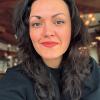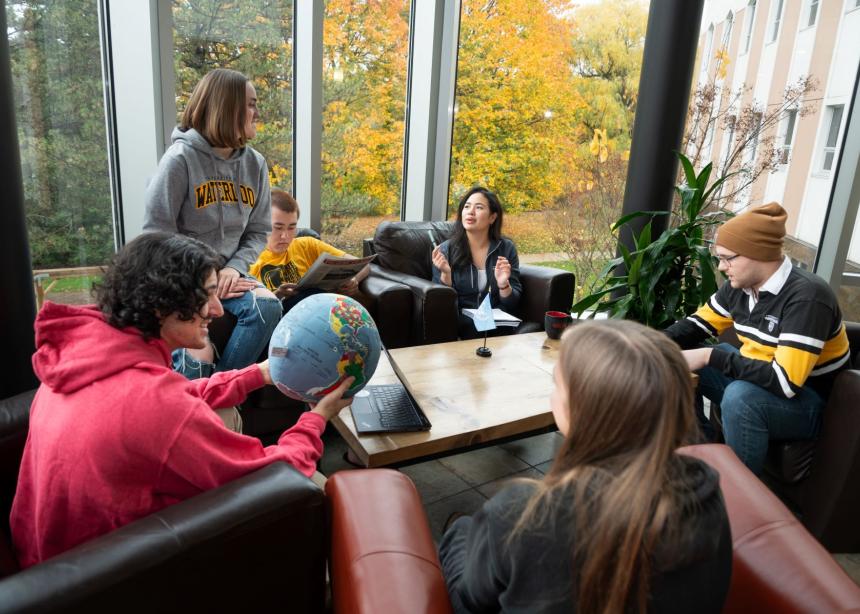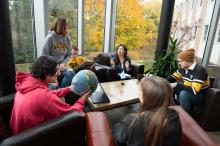Kim Penner says most courses that focus on gender roles in conflict tend not to look outside the experiences of men and women.
Penner is a scholar of theological ethics and full-time pastor at Stirling Avenue Mennonite Church in Kitchener, Ontario.
She will be instructing the Gender in War and Peace course to students of Peace and Conflict Studies at Conrad Grebel University College during the spring 2024 session.
“What’s really exciting about this course is that it’s looking at gender beyond a binary understanding,” she says.
The course was previously taught by Professor Marlene Epp. After she retired in the summer of 2022, the college lacked teaching capacity in this area for a time.
Penner says that Epp developed conversations around pacifism, conscientious objection, masculinities and femininities. She says Epp’s contributions were formative and important, especially to an academic institution with Mennonite connections.
According to the course description, the course “uses gender (and its intersections with other social locations such as: race, class, dis/ability, age, culture) as a critical lens for analyzing experiences of and theory related to war and peace to better understand differential patterns of suffering and violence, and to seek peacebuilding that transforms rather than reinscribes gender inequality, sexism, and binaries.”
Penner is prepared to complicate how students understand peace by tapping into the voices of people whose genders and/or sexual orientations are not affirmed by society in times of peace and much less during war.
The planned course material includes a film about the experiences of Canadian and American trans persons serving in the military.
It will also draw upon the development of Ukraine’s Union of LGBT Military to discuss queer experiences in war.
Penner notes that in the context of Palestine, queer people have been pitted against the country through claims of homophobia in Gaza, instead of holding space for LGBTQ+ Palestinians to speak for themselves.
Students will examine narratives about war in terms of how they are told and their function in society. Do they garner care and support for one group? Do they dehumanize the enemy?
Penner hopes that students will walk away from the course knowing how to identify social constructs like gender norms, heteronormativity and racism in their daily lives, recognizing their potential to feed into narratives of war.
“The work we all need to be doing [is] to try and deconstruct those and work towards visions of shared power.”
At this time Penner has not received any pushback or criticism for her approach to the course, but she does have some safety concerns.
In September of last year, a student walked into a gender studies classroom and stabbed the professor as well as two students.
The University of Waterloo has since worked to reclaim itself as a safe, LGBTQ+ affirming space, but Penner says the incident is “still in the background.” It is not an option for her to move the course online entirely, but she does have the option to select from classrooms with different exits.
“I’m thinking through how we will be comfortable having these conversations on campus,” says Penner.
Ndagire Brendah is a graduate of the Masters of Peace and Conflict Studies (PACS) program and serves as PACS Academic and Administrative Officer at the University of Waterloo.
She says ongoing conflicts in various locations in the world are not lost on PACS faculty. Whether it’s the violence in Ukraine, South Sudan, Sudan, rural Colombia, the Gaza Strip, the West Bank, the United States and even Canada, she says all these conflicts share in common the significant harm done to women and members of the LGBTQ+.
Brendah says students are happy to see the course return after an absence. “Students are really excited that we are offering it again, as much as we are excited,” she says.





Add new comment
Canadian Mennonite invites comments and encourages constructive discussion about our content. Actual full names (first and last) are required. Comments are moderated and may be edited. They will not appear online until approved and will be posted during business hours. Some comments may be reproduced in print.